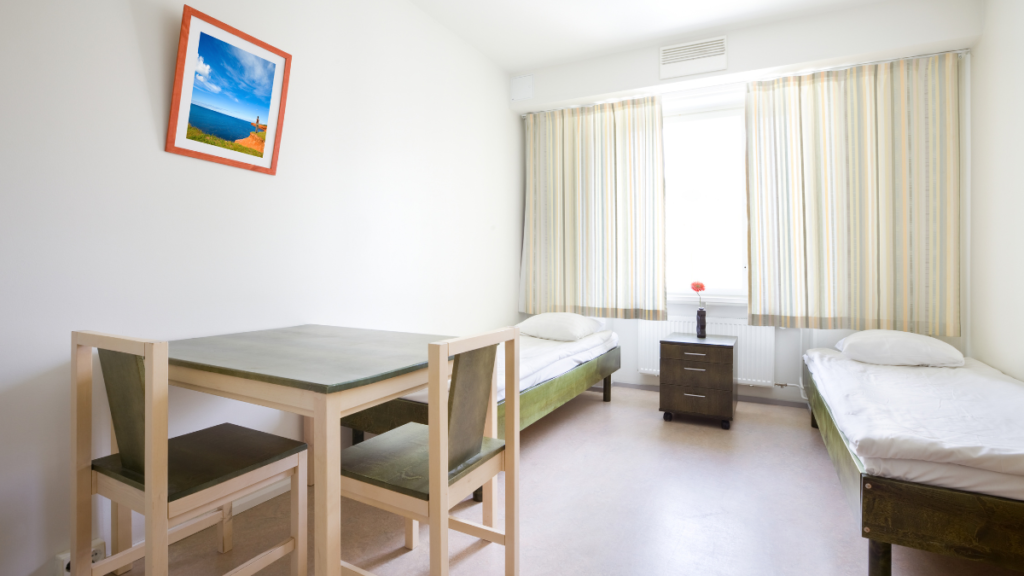Choosing to send your child to residential treatment for their eating disorder is a big decision. I have yet to meet a parent who doesn’t feel nervous and unsure about how to decide how to handle this.
Following are some of the most common questions and my answers to help you make the best decision you possibly can. While residential treatment is not a magic bullet to full recovery, it can be an initial stepping stone that can help your child and your whole family get on the road to recovery.
What can I expect in residential eating disorder treatment?
Residential treatment for eating disorders is a full-time program designed to support your child in stopping their eating disorder behaviors and achieve weight restoration if needed. These programs are similar to hospitalization in that your child will have very limited options and freedom. The truth is that these are mental health institutions and their primary goal is safety, which often comes at the cost of autonomy.
Their primary goal is to stop eating disorder behaviors and feed your child regular, substantial meals in order to achieve weight restoration. While therapeutic services and group therapy are provided, residential programs do not address the causes of an eating disorder. Rather, they are focused on stabilization and symptom reduction.
What are the alternatives to residential programs?
The main alternative to residential programs is outpatient care, which takes place in your home. Parents can do the same work as a residential program using Family Based Treatment (FBT) and other parent-led eating disorder treatments to achieve stabilization and symptom reduction. However, many parents find it extremely difficult, especially if significant weight gain is required and the child is deeply resistant to weight gain.
Residential treatment may be a good way to get over the first hump of eating disorder treatment, however, it is not a comprehensive program. Nor is it a magic bullet that results in full recovery. Additional treatment will be required, including making changes at home to support recovery.
How long is residential treatment?
The length of eating disorder treatment in a residential facility varies greatly, but it generally ranges from weeks to months. During that time, the facility will set specific treatment goals. If your child meets the goals, they will gradually gain more freedom and move towards outpatient treatment.
The early stages of residential treatment are typically highly restrictive and, spoiler alert: most people HATE it. But as your child makes progress, the restrictions will loosen.
How do I know if residential eating disorder treatment is right for my child?
The main thing to consider is whether you are able to get your child into the initial stages of recovery using outpatient and parent-led treatment. Not everyone needs residential treatment, and it should be used strategically and judicially. If your child is medically unstable and you have tried FBT but it’s not leading to weight restoration then residential treatment may be what’s needed to get your child stable.
What should I ask at a residential eating disorder facility?
The top five questions to ask a residential eating disorder treatment facility are:
What is your treatment approach? On what evidence is your treatment approach based? What is the data suggesting the effectiveness of your program?
Specifically, how do you treat people with my child’s type of eating disorder? What is the general treatment plan/approach?
How long does it usually take to stabilize a child’s eating disorder?
What is the daily schedule, and who specifically will be working with my child? How many private treatment sessions will my child have, and with whom?
How do you ensure that my child won’t be negatively influenced by others in the program?
Grab a copy of my free questions to ask residential eating disorder treatment with these questions plus more, along with notes you can use to guide your evaluation of inpatient treatment.
How do I tell my child I’m sending them to residential eating disorder treatment?
Telling your child that you’re going to send them to a residential program is tricky. You want to do a few things:
Do your research and make an informed choice before you talk to your child about it. You don’t want to open discussion or negotiation about residential treatment, unless you know your child wants to go.
Don’t present inpatient treatment as a threat or punishment for having an eating disorder. While you may need to use residential treatment if other treatments aren’t working, be careful that this is presented as a solution, not a punishment.
Be clear and confident when telling your child. More than the words you say, how you feel matters. Your child will sense how you feel about this decision. Work on regulating your emotions to ensure you present residential treatment from a calm, confident frame of mind.
Parent support for residential eating disorder treatment
Sending your child to a residential program is a big decision. You don’t have to make it alone! Let me know if you’d like to schedule a coaching session to weigh the pros and cons and help you make the best decision for your child right now and/or figure out how to tell them about your decision.
Not Sure Yet? No Problem!
Let’s keep in touch!

email newsletter: Parenting tips & information

Free Download: How To Parent A Child With An Eating Disorder


